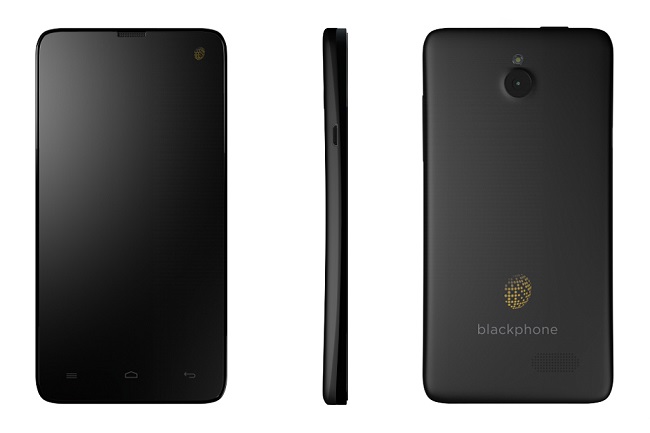<h2 style="text-align: justify"><strong>Blackphone: Is the New Droid Privacy Phone All It Seems?</strong></h2>
<p style="text-align: justify">The &#8220;Blackphone&#8221; is a revolutionary new phone being released with Android OS that is designed to be almost completely private. Designed for those that value their privacy above all else &#8212; such as high-level executives who want to ensure that their ideas and company information don&#8217;t fall into the wrong hands &#8212; the Blackphone has a variety of methods to ensure the security of those that use it.</p>
<h2 style="text-align: justify"><strong>What is the benefit of the Blackphone?</strong></h2>
<p style="text-align: justify">The Blackphone goes beyond simply including security applications or security software; the entirety of the phone has been developed from the bottom up to ensure that it is secure. &#8220;Security is an increasingly significant concern within the smartphone market,&#8221; according to Scott Garcia, Android expert at Armor for Android. &#8220;More vital data is stored on our smartphones today than any other device before in history.&#8221;</p>
<p style="text-align: justify">The Blackphone is being engineered to create anonymity. Emails, phone calls and text messages should theoretically be both encrypted and unable to be traced. However, there are a few major concerns that many consumers have with this technology.</p>
<h2 style="text-align: justify"><strong>Protecting the Blackphone against the NSA.</strong></h2>
<p style="text-align: justify">With it becoming increasingly clear that the NSA is able to establish backdoors in a variety of types of technology, many consumers are skeptical that the Blackphone could truly be an uncompromised option. Indeed, court orders and other issues mitigate the majority of privacy that can be offered through many of these services; often, privacy cannot be applied to the government. However, the Blackphone is intended to use a specific version of Android, named Private OS.</p>
<h2 style="text-align: justify"><strong>Who is the Blackphone intended for?</strong></h2>
<p style="text-align: justify">It&#8217;s important to note that standard applications shouldn&#8217;t be run on the Blackphone; the Blackphone will include its own set of applications that are anonymous and secured. The Blackphone is intended for anyone concerned about their privacy; the goal of the Blackphone is to put privacy back into the individual&#8217;s hands. Nevertheless, it&#8217;s important to note that you probably won&#8217;t be able to do everything on the Blackphone that you could do on the ordinary Android OS &#8212; or, if you can, you probably won&#8217;t want to. Things that could compromise your security will likely be protected against.</p>
<h2 style="text-align: justify"><strong>What are the core Benefits of the Blackphone?</strong></h2>
<p style="text-align: justify">The Blackphone has been designed by experts in the security community and is chiefly designed to create an additional layer of security through cryptography and a lack of data sharing. The phone will be highly supported and regularly updated, to ensure that any issues are quickly patched. Furthermore, the device is intended to create an opaque layer of security, through which it will allow you to select which items are shared. As the phone does not fall under a specific carrier, consumers don&#8217;t need to worry about their carriers releasing their personal information. However, some of the security community question whether any communications could ever be truly anonymous.</p>
<h2 style="text-align: justify"><strong>What are the specifications of the Blackphone?</strong></h2>
<p style="text-align: justify">The Blackphone is very similar to other Android offerings. It includes front and rear cameras, an HD display, LTE and GPS. The built-in applications include secure file storage, silent texting, silent contact lists, silent phone calls, secured wireless and a special Blackphone firewall that protects you from any intrusions. Furthermore, the phone can be wiped remotely in the event that it is stolen or misplaced.</p>
<h2 style="text-align: justify"><strong>Are there Concerns with the Blackphone?</strong></h2>
<p style="text-align: justify">At $629 the Blackphone isn&#8217;t cheap, but it also doesn&#8217;t require any contracts. However, some people are concerned about the Blackphone&#8217;s privacy promises. Indeed, many are skeptical that the Blackphone would be able to protect against government requests; while personal data is not shared, there is nothing to say that it is not stored. Thus, a warrant could easily result in personal data being seized by the government.</p>
<p style="text-align: justify">The Blackphone&#8217;s release is slated for early 2014 and it&#8217;s not the only technology. Boeing is also attempting to create a self-destructing phone to ensure that sensitive data cannot be compromised even if the phone is physically stolen. While this may seem a little like an overreaction, Boeing often deals with military contracts and items of high security intelligence &#8212; a &#8220;self-destruct&#8221; button may very well be the best option in these circumstances.</p>
<h5 style="text-align: justify">Featured images:</h5>
<ul style="text-align: justify">
<li> <span class="license">License: Image author owned</span></li>
</ul>
<p style="text-align: justify">About Author: Christopher is a writer for antivirus company, Armor for Android. Christopher has worked in the Android security field for several years and provides content and advice to Android users. When Christopher isn’t writing, he’s mountain biking or training for triathlons.</p>

Blackphone: Is The New Droid Privacy Phone All It Seems?
